Paid Search Analytics to Outsmart Your Agency
- Aug 24, 2025
- 17 min read
Paid search analytics isn't just about collecting data. It’s the process of turning a sea of clicks, costs, and conversions into smart, profitable decisions for your business. The goal isn't to gather numbers; it's to find actionable strategies that actually make you money.
Why Your Agency's Reports Are Holding You Back
Let's be honest—that monthly agency report probably feels more like a confusing data dump than a helpful strategy guide. It lands in your inbox packed with charts and percentages, but what story is it really telling?
For too many businesses, it’s a story of vanity metrics and missed opportunities. This is a classic symptom of working with an overpriced, bloated agency that relies on a one-size-fits-all model.
They apply the same generic templates to every client, focusing on easy-to-report numbers like impressions and clicks. While those figures might look impressive on a PDF, they create a massive disconnect between your ad spend and your bottom line.
The Problem with Generic Analytics
The real issue here is a lack of specialization. Large agencies often assign junior-level account managers to juggle dozens of clients at once. They simply don't have the time—or the deep expertise—to dive into your unique business goals and figure out what really moves the needle.
Your account becomes just another number in their portfolio, leading to some all-too-common frustrations:
Focus on Vanity Metrics: They highlight things like impressions and click-through rates (CTR) to create the illusion of success, even if your return on ad spend (ROAS) is tanking.
No Actionable Insights: You get data, but no clear direction. The report tells you what happened, but not why it happened or what strategic changes are coming next.
Wasted Ad Spend: Without a dedicated expert digging into your search query reports and performance data, your budget is almost certainly being wasted on irrelevant keywords and underperforming ad groups.
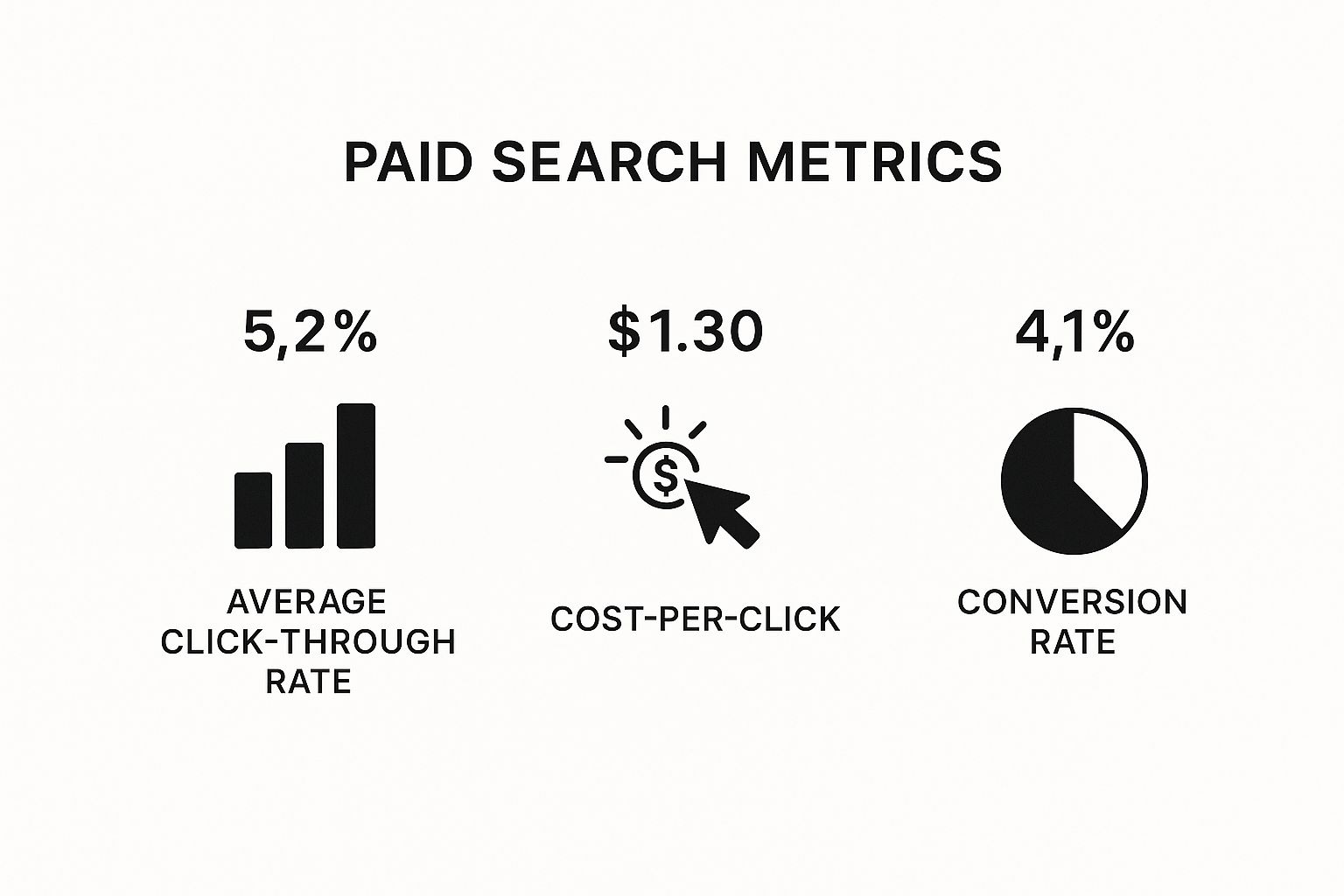
As you can see, attracting clicks is just the start. The real goal is turning those clicks into customers as efficiently as possible.
The Expert Consultant Advantage
In stark contrast, an independent consultant’s entire value is built on specialization. My focus isn’t spread thin; it’s dedicated to translating complex paid search analytics into clear, profitable actions for your specific business.
I don’t hide behind vanity metrics because my success is directly tied to yours. The goal isn't to send you a pretty report; it's to deliver tangible results that grow your business.
This hands-on, expert-led approach is crucial. Paid search isn't just a side channel; for many, it's the primary engine for growth. Consider this: 80% of businesses rely on PPC to fuel their strategies, and paid visitors are roughly 50% more likely to convert than organic traffic.
With 65% of consumers clicking on ads when they’re ready to buy, having a specialist who can actually dissect the data is the key to capturing that high-intent demand. To see just how powerful this can be, you can discover more insights about the power of PPC for business growth.
The difference between a specialist and a generalist agency often comes down to their entire approach to analytics and reporting.
Expert Consultant vs Standard Agency Analytics
Attribute | Expert Consultant (Your Advantage) | Standard Agency (The Problem) |
|---|---|---|
Primary Focus | Profitability & ROAS. Success is measured by your bottom line. | Vanity Metrics. Reports highlight clicks & impressions to look busy. |
Strategy | 100% Tailored. Built around your unique margins, goals, and customers. | Cookie-Cutter Playbooks. One-size-fits-all templates are applied to all clients. |
Insights | Actionable Recommendations. "Here's the data, why it matters, and what we do next." | Data Without Direction. "Here's what happened." The "why" is often missing. |
Execution | Direct & Fast. Insights are immediately turned into optimizations by the expert. | Slow & Bureaucratic. Strategy moves through layers of managers and teams. |
Reporting | Strategic & Concise. Focused on the KPIs that directly impact business growth. | Bloated & Confusing. Overwhelms with data but provides little real clarity. |
Ultimately, you need a partner who sees your data not as a reporting requirement, but as a roadmap to greater profitability.
Focusing on Metrics That Actually Drive Profit
A flashy agency report filled with rising charts for clicks and impressions might look good on paper, but it's often just a smokescreen. These are classic "vanity metrics"—easy to report, even easier to manipulate, and designed to create an illusion of success.
But here’s the hard truth: Clicks don't pay your bills, and impressions can't be deposited in the bank. Your actual business goals, like generating revenue and acquiring profitable customers, get lost in the noise.
An experienced consultant measures value differently. My focus isn’t on justifying fees with surface-level activity; it's locked on the key performance indicators (KPIs) that connect directly to your bottom line. Effective paid search analytics isn’t about looking busy. It’s about proving value and driving tangible growth by shifting the conversation from "How many people saw our ad?" to "How much profit did that ad generate?"
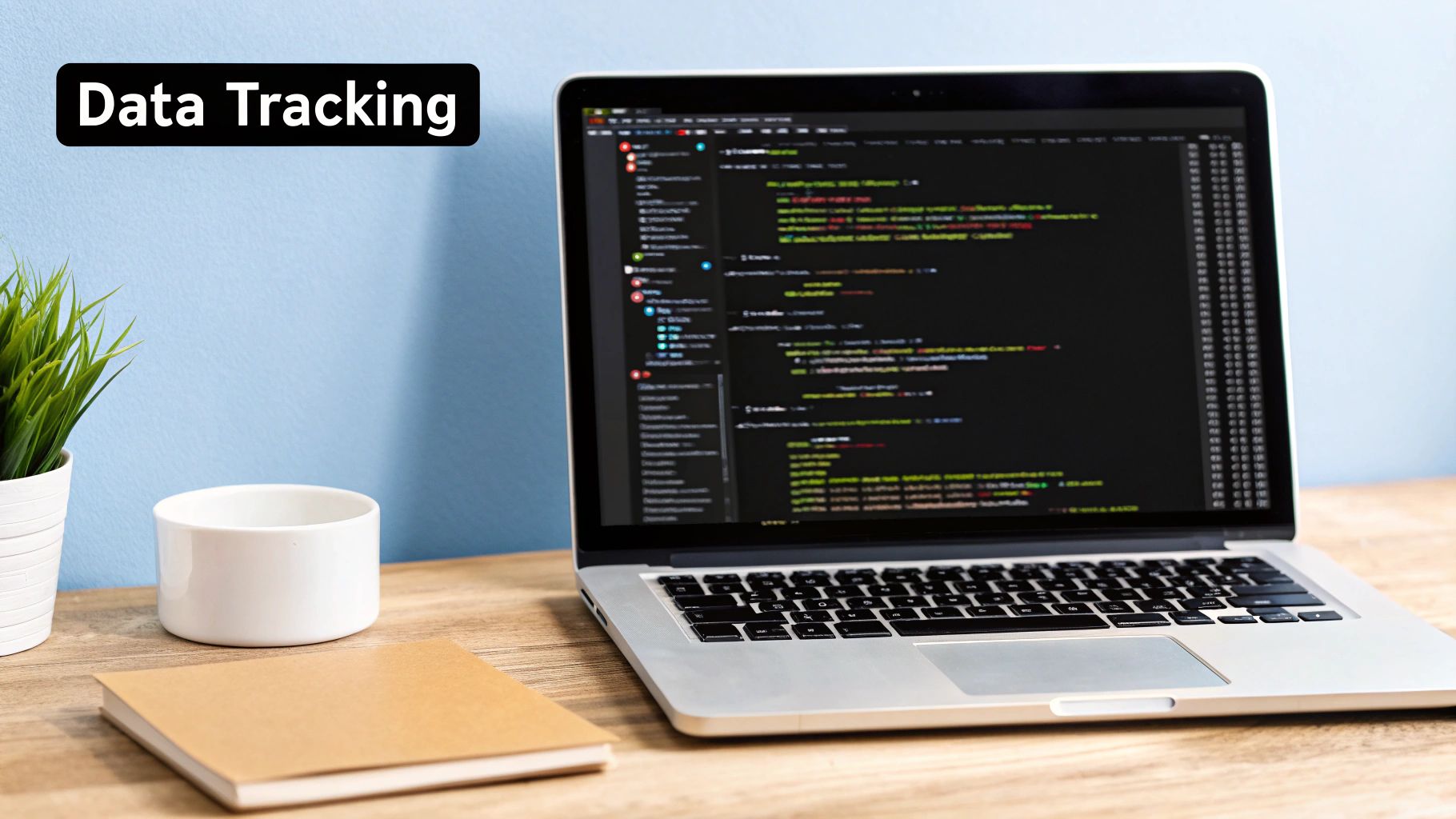
Decoding the Metrics That Matter
To see through the agency smoke and mirrors, you have to speak the language of profit. A true specialist lives and breathes these numbers, using them not just for reporting, but for making strategic decisions every single day.
Here are the core KPIs that actually define success in paid search:
Conversion Rate: This is the percentage of clicks that turn into something valuable, like a purchase, a form submission, or a phone call. A high click-through rate with a low conversion rate is a massive red flag—it means you're paying for traffic that doesn't deliver.
Cost Per Acquisition (CPA): This tells you exactly how much it costs to get one new customer or lead through your ads. A lower CPA means your campaigns are running more efficiently, which directly impacts your profit margins. Simple as that.
Return On Ad Spend (ROAS): This is the ultimate measure of profitability. ROAS calculates the total revenue generated for every dollar you spend on ads. A ROAS of 4:1, for instance, means you're making $4 for every $1 you invest. This is the number that tells you if your ads are a worthwhile investment or a money pit.
These three metrics are a powerful trio. While a big agency might celebrate a campaign that drove 10,000 clicks, an expert asks the critical follow-up questions: What was the conversion rate on those clicks? What was our CPA? And most importantly, what was the ROAS?
The goal is to build a predictable engine for growth, not just a machine that generates clicks. True success comes from understanding the direct financial impact of every dollar spent—a level of detail often overlooked in generalized agency workflows.
The Long-Term View with Customer Lifetime Value
Beyond the immediate return, a truly specialized approach considers the long-term profitability of the customers you acquire. This is where Customer Lifetime Value (CLV) becomes an essential part of the analytics puzzle.
CLV represents the total net profit you can expect from a single customer over their entire relationship with your business. Once you understand your CLV, you can make much smarter decisions about your CPA.
For example, a CPA of $75 might seem high for a product that costs $100. But what if that customer is likely to make five more purchases over the next two years? Suddenly, that initial acquisition cost becomes incredibly profitable.
This deeper level of analysis is the hallmark of an expert. It’s about investing in acquiring the right customers—those who will drive sustained revenue—instead of just chasing the cheapest conversions. This strategic foresight separates a true growth partner from a simple service provider.
As the paid search world matures, costs are rising, but so are the potential returns for those who know how to play the game. Click-through rates have climbed thanks to better-crafted ads and more precise audience targeting. The overall trend shows that bigger budgets can still deliver incredible returns when campaigns are guided by solid data. You can explore deeper insights into Google Ads benchmarks to get a better feel for these trends.
Building a Rock-Solid Analytics Foundation
Your paid search strategy is only as good as the data it’s built on. Simple as that. This is where so many large, overloaded agencies cut corners, poisoning your data from day one with a flawed technical setup. They rush through the process, leaving huge tracking gaps that make it impossible to get a true picture of what’s actually working.
A dedicated expert knows better. Building this foundation correctly isn’t just a box to tick—it’s the single most important step in creating a profitable advertising machine. It means taking the time to build a system you can actually trust, making sure every dollar you spend is tracked and measured against real business outcomes. This meticulous setup is the first and most important advantage you get with a specialist over a generalist agency.
The whole thing starts with one non-negotiable step: linking your Google Ads account to Google Analytics 4 (GA4).
Why Connecting Google Ads and GA4 Is Essential
Think of Google Ads as the engine in your car and GA4 as its advanced diagnostic system. The engine can run on its own, burning fuel and moving you forward. But without the diagnostic system, you have no idea how efficient it is, how much fuel it’s using, or when a critical part is about to fail.
Linking these two platforms creates a powerful feedback loop. Google Ads tells you what happens before the click (impressions, CTR, cost). GA4 tells you what happens after the click (how users behave, if they engage, and most importantly, if they convert).
When they’re properly connected, you can finally see the entire customer journey. This integration is the bedrock of intelligent paid search analytics. It allows a specialist to answer the critical questions that agencies often ignore:
Which specific keywords are driving not just clicks, but high-quality, engaged traffic?
How do users from paid campaigns behave on your site compared to users from other channels?
Which ad groups are attracting people who actually convert, and which are just wasting your budget on window shoppers?
Without this connection, you're flying blind, making budget decisions with only half the story.
Tracking Conversions That Actually Mean Something
Another classic agency failure is tracking the wrong things. They’ll set up "conversions" for low-value actions like someone visiting a contact page or spending two minutes on the site. This looks great in their monthly reports, creating an illusion of success while your actual sales or lead numbers stay flat.
A real expert focuses on what I call "meaningful business actions." These are the conversions that directly contribute to your revenue and growth.
A conversion isn't just a click or a page view. It’s a tangible, valuable outcome—a completed sale, a submitted lead form, a booked appointment, or a high-value software trial signup. Anything less is just noise.
For an e-commerce store, the only conversion that really matters is a completed purchase. For a B2B company, it's a qualified lead from a form submission. A true consultant takes the time to understand your business model and sets up precise conversion tracking in GA4 for these high-value events. We then import these specific GA4 conversions directly into Google Ads, making sure your campaigns are optimized for actual profit, not just activity.
When you're dealing with campaigns that demand expert PPC management for high-spend accounts, this level of precision is the difference between scaling successfully and just burning through cash. It’s a world away from the typical agency approach, where rushed setups leave you optimizing for flimsy metrics, wondering why "conversions" are up but revenue isn't.
The screenshot above shows an example of a GA4 dashboard where you can begin to see the user journey and conversion events. When it's configured properly, this is where you can see exactly which paid channels are bringing in engaged users who complete the actions that grow your business.
This careful setup is essential, especially when you consider you're playing on the world’s most dominant advertising platform. Google holds a staggering 89.5% share of the global search market, handling over 5 trillion searches every year. The nuances in user behavior—like desktop users making decisions within five seconds 45% of the time versus mobile users taking longer—demand a precise analytics foundation to capture that intent effectively. Getting this right is critical, and it all starts with a solid foundation.
Turning Your Data Into Winning Ad Strategies
With a solid analytics foundation in place, the real work begins. This is where a dedicated consultant moves beyond the technical setup and starts turning raw numbers into profitable advertising strategies—a step often glossed over by overloaded agencies running on autopilot.
Data without action is just expensive trivia. An expert uses paid search analytics not just to report on what happened last month, but to actively shape the future of your campaigns. This isn't about trusting automated suggestions blindly; it's about a hands-on, strategic approach that plugs budget leaks and drives real revenue.
So, where do we start? We dig into one of the most valuable, yet surprisingly ignored, reports in the entire Google Ads platform: the Search Query Report.
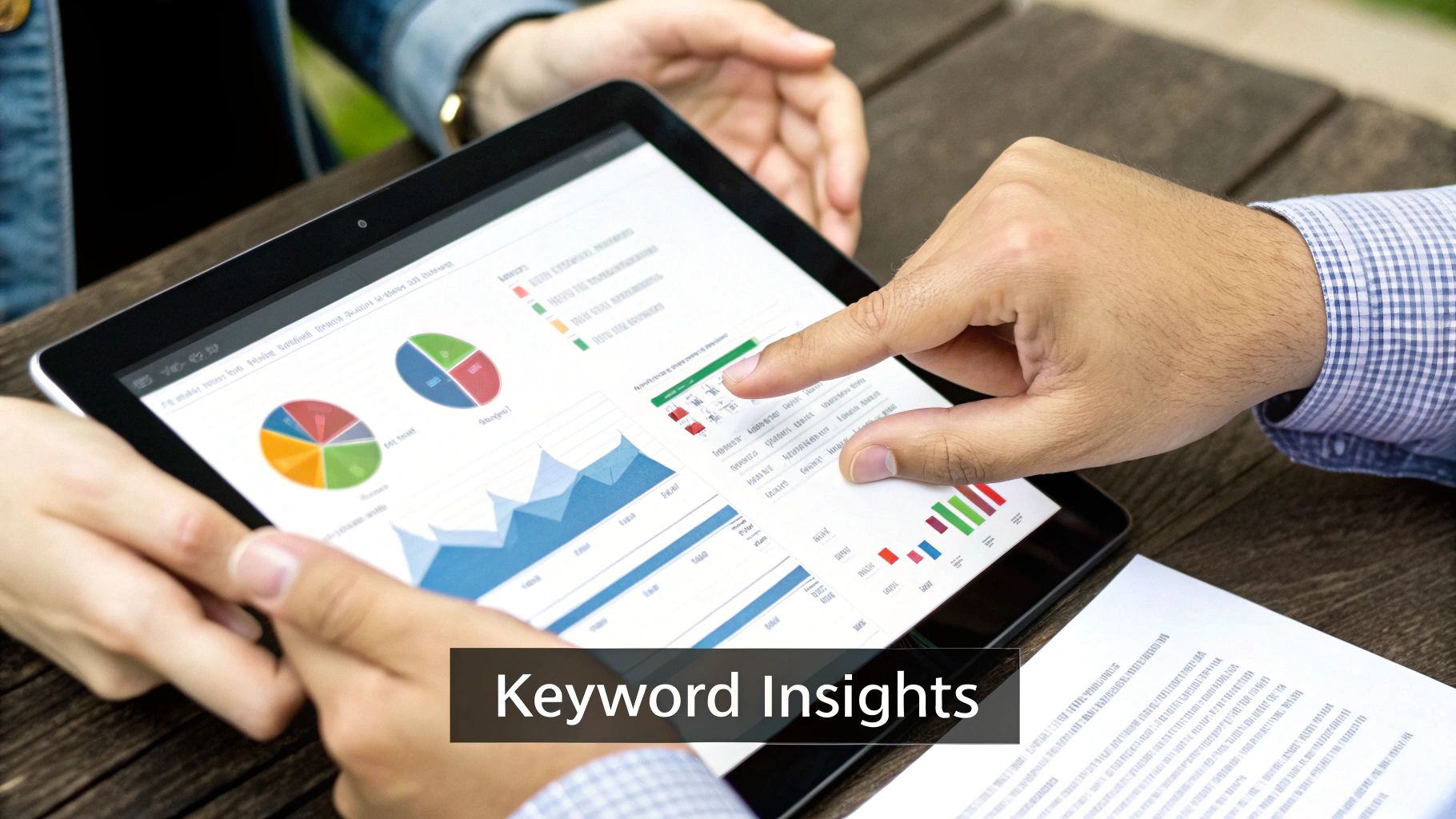
Uncovering Gold With Search Query Analysis
The Search Query Report shows you the exact phrases people typed into Google right before they saw and clicked your ad. It's a direct window into your customer’s mind. You bid on keywords, but your audience searches with queries, and understanding the difference is everything.
Big agencies often neglect this report because combing through it takes time. They let the algorithm do the work, which almost always results in significant wasted ad spend. A specialist, on the other hand, meticulously digs through this data to hit two critical goals:
Eliminate Wasted Spend: We hunt down irrelevant queries that are triggering your ads and add them as negative keywords. If you sell "premium leather shoes" and your ads are showing for "cheap shoe repair," you’re just burning cash. Adding "repair" as a negative keyword instantly stops that bleeding.
Discover Hidden Opportunities: We also find high-performing queries you aren’t even bidding on. Finding a new, highly specific search term that converts well is like striking gold. We can immediately add it as an exact match keyword and write hyper-relevant ad copy for it, often leading to a massive boost in conversion rates.
This granular analysis is a core function of an expert consultant. It’s a level of detail that directly translates into a more efficient budget and a much higher return on ad spend.
Adjusting Bids Based On Real Performance
Google’s automated bidding strategies are powerful, but they aren't infallible. They operate on broad algorithmic goals and can make decisions that don't align with your specific business margins or market conditions. This is where human expertise, guided by data, makes all the difference.
An expert uses paid search analytics to make manual adjustments that steer the algorithm in the right direction. We look at performance data segmented by device, time of day, location, and audience.
For example, if the data shows your conversion rate is 50% higher on desktop devices between 9 AM and 12 PM in a specific city, a specialist will apply a positive bid adjustment to get more aggressive during that window. This is a strategic move that a generic, automated setup will almost always miss.
This proactive, data-informed approach ensures your budget is allocated where it will generate the best possible return, moving you far beyond a "set it and forget it" mentality.
A/B Testing Your Way To Higher Profits
Finally, optimization is a continuous cycle of testing and refinement. A common agency pitfall is launching a campaign and just letting it run without any rigorous testing. An expert consultant, however, treats every element of your campaign as a hypothesis that needs to be proven.
We use data to drive systematic A/B testing on the two most critical components of your campaigns:
Ad Copy: We test different headlines and descriptions to see which message truly resonates with your audience. Does a headline focused on "Free Shipping" outperform one highlighting "5-Star Reviews"? Only the data knows for sure.
Landing Pages: The ad is only half the battle. We also test different versions of your landing pages. Does a page with a video convert better than one with just text? Sometimes a simple change, like the color of a "Buy Now" button, can have a surprisingly huge impact on conversion rates.
This relentless testing process is how small, incremental gains stack up to create massive improvements in overall performance. It’s the hands-on, detail-oriented work that separates a true strategic partner from a passive account manager.
The table below breaks down a few examples of how an expert translates simple data points into decisive, profitable actions.
From Data Point to Strategic Action
Data Point | What It Tells You | Expert Consultant's Action |
|---|---|---|
High CTR, Low Conversions | The ad is compelling, but the landing page isn't closing the deal. | Initiate A/B tests on the landing page (headline, offer, call-to-action). |
Irrelevant Search Queries | The keyword match types are too broad, wasting money on unqualified clicks. | Add irrelevant terms as negative keywords and refine match types to be more specific. |
High CPA on Mobile | Your mobile user experience or offer is underperforming. | Analyze the mobile landing page for issues and apply a negative bid adjustment if needed. |
Excellent ROAS for a New Query | A new, profitable search trend has been discovered. | Create a new ad group targeting that specific query with tailored ad copy and a dedicated budget. |
Ultimately, this is what it looks like to move from simply reporting on data to actively using it as a strategic weapon. Every data point tells a story, and an experienced consultant knows how to read it and write the next chapter.
How to Build Reports That Inform, Not Overwhelm
Ever received a 50-page PDF from your agency, flipped through endless charts, and walked away with zero actual clarity? That’s the classic sign of a bloated, overpriced agency. They use complexity to justify their fees, drowning you in data to create the illusion of progress.
That isn't strategic reporting. It's "data dumping."
An expert consultant operates on a totally different wavelength. My goal isn't to overwhelm you; it's to empower you with clarity. A report should be a strategic tool, not a historical document. It needs to tell a concise story about what worked, what didn't, and exactly what we're doing next to get better results.
The difference comes down to focus. A specialist partner builds reports around your actual business goals—profit, leads, and ROAS—not the vanity metrics that make agencies look busy.
The Consultant's Approach to Reporting Clarity
The secret to a useful report is customization and focus. Instead of plugging your numbers into a generic template, a consultant builds a dashboard that reflects what truly matters to your business.
The best tool for the job is Looker Studio (formerly Google Data Studio). It pulls data directly from Google Ads and GA4 into a single, easy-to-digest view.
A well-built dashboard becomes your single source of truth for campaign performance. It visualizes the KPIs we’ve already talked about—like Conversion Rate, Cost Per Acquisition (CPA), and Return On Ad Spend (ROAS)—so you can see how things are going at a glance.
Here’s what a clean, professional Looker Studio dashboard can look like. It provides a clear, visual summary of your data without the fluff.
This kind of visualization turns complex data into an accessible story, letting us spot trends and make decisions fast.
No more digging through spreadsheets or confusing PDFs. You get a live, transparent view of exactly how your investment is performing, accessible anytime. This is a level of transparency most large agencies actively avoid.
Structuring a Report That Drives Action
A powerful report does more than just present numbers; it provides a narrative. My reports are built to answer three critical questions every single month:
What Worked? We pinpoint the specific campaigns, ad groups, and keywords that drove the best results and highest ROAS. This isn't just about celebrating wins; it's about understanding why they won so we can replicate that success.
What Didn't? We get brutally honest about where money was wasted. This means highlighting underperforming ads, irrelevant search queries that bled the budget, or targeting segments that failed to convert. This transparency is non-negotiable for continuous improvement.
What's the Plan? Based on the data, we outline the concrete strategic actions for the coming month. This could mean reallocating the budget, launching new A/B tests, or adding specific negative keywords to stop the bleeding.
This structure transforms the report from a passive summary into an active game plan. It reinforces my role as your dedicated partner, accountable for results and constantly looking for ways to **improve your Google Ads performance and ROI**.
That focus on actionable insights is the fundamental difference between a consultant who is invested in your growth and an agency just going through the motions.
An effective report is a conversation starter, not a conversation ender. It should provide answers but also spark strategic questions about how to scale what's working and fix what isn't.
Ultimately, clear and concise reporting is a matter of respect—for your time, your budget, and your intelligence. It’s about delivering genuine paid search analytics that inform decisions and drive profit, proving that a dedicated expert is always a better investment than a disconnected, overpriced agency.
Why a Specialized Consultant Beats an Agency Every Time
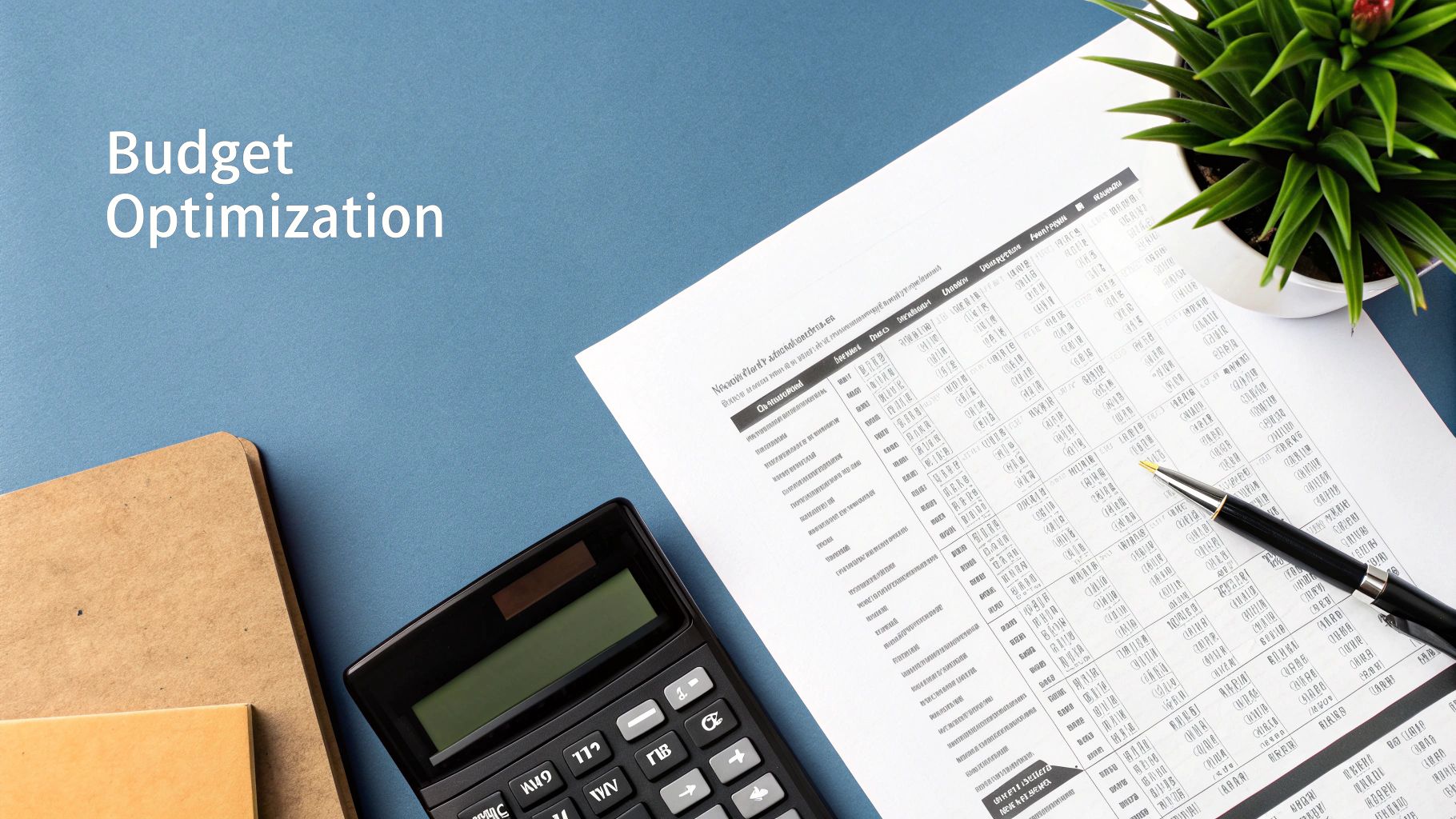
Choosing a partner to run your paid search campaigns is one of the biggest calls you'll make for your business. After digging into the weeds of paid search analytics, one thing becomes crystal clear: the type of partner you choose directly shapes your results.
Big, bloated agencies often work like an assembly line. Your account gets bounced between departments and junior-level managers, which means the strategy is disjointed and nobody really owns the outcome. They lean on cookie-cutter playbooks and vanity metrics because their business model is built on volume, not your individual success.
An independent consultant flips that entire model upside down. When you work with a specialist, you slice through all the bureaucracy. You get direct expertise and an obsessive focus on one thing: your profitability.
The Power of a Dedicated Partner
The difference between the two is night and day. A dedicated expert brings a level of detail and strategic thinking that a sprawling agency just can't replicate. With a specialist, you get real advantages that show up on your bottom line.
Deeper Expertise: You get a seasoned pro—not an entry-level employee learning the ropes—managing every single part of your account.
Direct Accountability: Success or failure rests on one person's shoulders. That guarantees they are 100% invested in your growth.
Customized Strategy: Your campaigns are built from scratch to hit your business goals, not crammed into a generic template.
Transparent Reporting: You get clear, straight-to-the-point reports focused on profit-driving KPIs, not 50-page PDFs filled with fluff.
Ultimately, it's the difference between being a small fish in a giant agency pond and having a dedicated partner who genuinely understands and champions your goals. This personalized attention is critical, and it's why an expert consultant outperforms most agencies.
Imagine what it would be like to have a partner who turns complex data into clear, profitable actions. It’s a world away from fighting a disconnected, expensive agency that treats you like just another account number.
To unlock the real potential of your paid search campaigns, finding that specialized expert isn’t just an option—it’s the smartest move you can make.
Your Paid Search Analytics Questions, Answered
Diving into paid search analytics can feel like you're staring at a wall of numbers. But making sense of it is the only way to make smart, profitable decisions. Let's cut through the noise and answer the most common questions I hear from businesses.
How Long Does It Really Take to See Results?
You'll see traffic and clicks almost the second a campaign goes live. That's the easy part. But real business results—the kind that show up on your bottom line—take time to cultivate.
Plan on a 60-90 day window. That’s the minimum time a dedicated expert needs to gather enough performance data to start making meaningful optimizations. Agencies might promise the moon overnight, but true profitability is a process. This initial period is all about analyzing search queries, testing ad copy, and dialing in bids based on what the data tells us about your specific market.
Why Is My ROAS So Low?
A low Return On Ad Spend (ROAS) is almost never a single problem. It's a symptom of deeper strategic issues that a surface-level agency approach usually glazes over. Think of it as a series of small leaks in a bucket.
The usual suspects include:
Poor Keyword Targeting: You're paying for broad, irrelevant search terms that bring window shoppers, not buyers.
Ineffective Ad Copy: Your ads get plenty of clicks, but they aren't attracting qualified customers.
Weak Landing Page Experience: You're sending expensive traffic to a page that simply doesn't convince people to act.
No Negative Keyword Strategy: You're failing to block thousands of costly, non-converting search queries from triggering your ads.
Fixing a low ROAS isn't about flipping a switch. It requires a meticulous, hands-on diagnosis to find and plug every single leak, ensuring your budget is only spent on actions that actually generate revenue.
Can't I Just Let Google's Automated Bidding Handle It?
Google's automated bidding strategies are incredibly powerful. But they are tools, not solutions. They aren't a "set it and forget it" magic button. They perform best when guided by a human expert who understands your actual business goals.
Relying solely on automation without expert oversight is like letting a self-driving car navigate a new city without a map. It might get you to the destination, but it sure won't take the most efficient or profitable route.
An experienced consultant provides the strategic direction—using your specific profit margins and customer lifetime value to set the right guardrails. Automation then helps execute that strategy at scale. It’s this partnership between human insight and machine learning that delivers results that neither can achieve alone. That’s a level of nuanced management you just don't get from a standard agency playbook.
Ready to stop guessing and start seeing a real return from your ad spend? Come Together Media LLC offers the specialized, one-on-one Google Ads consulting that bloated agencies can't match. Book your free consultation today and get a clear, actionable plan to improve your campaign performance.




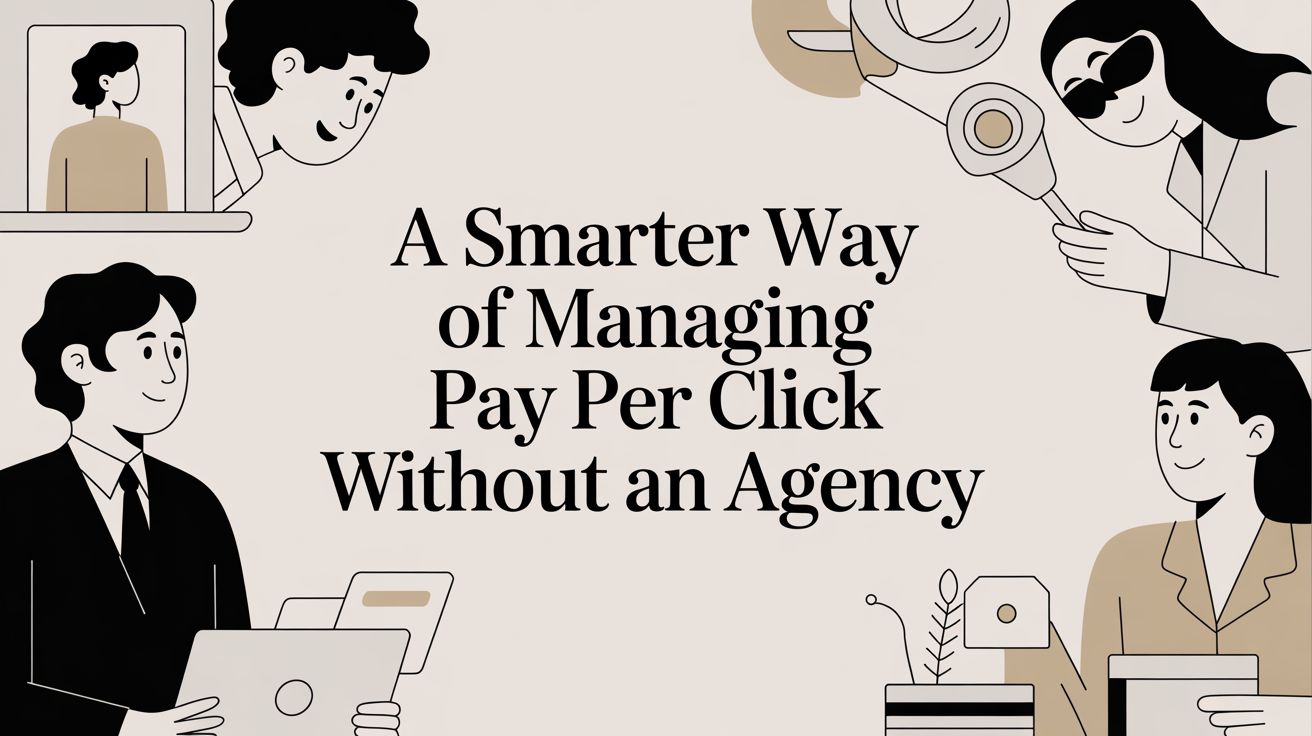
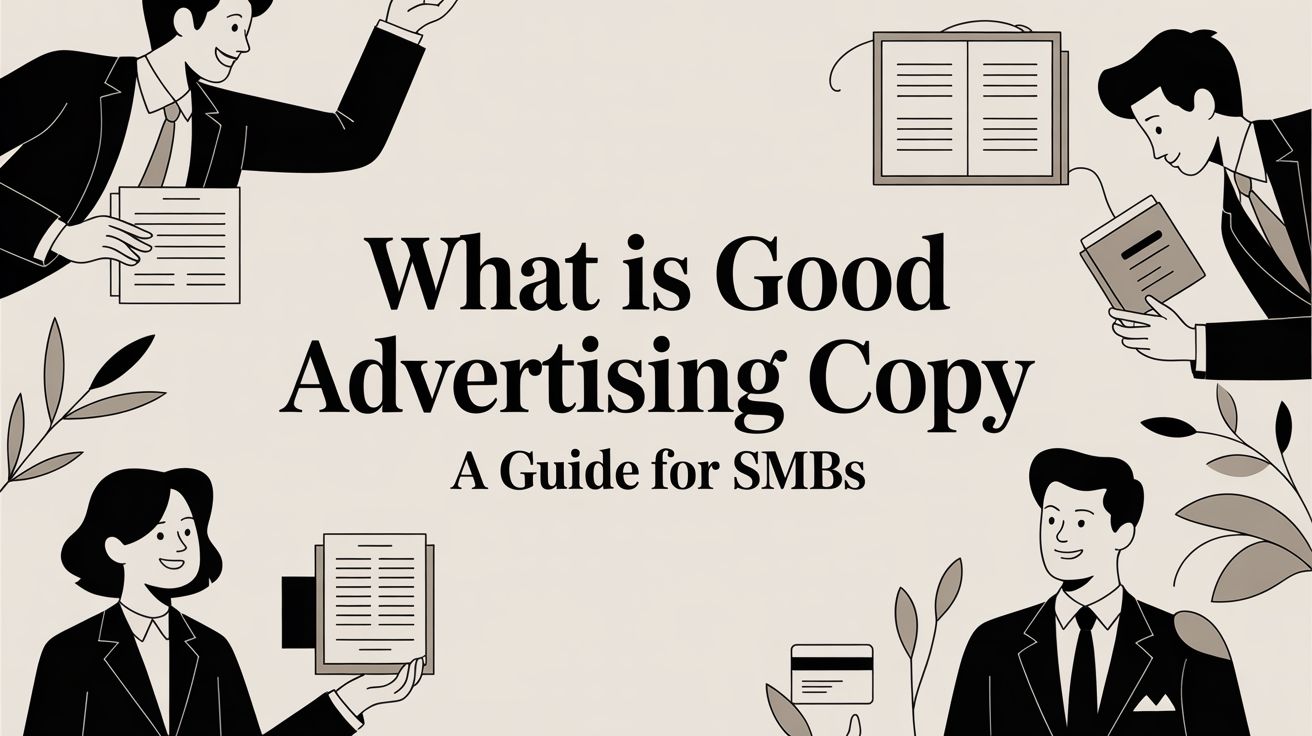
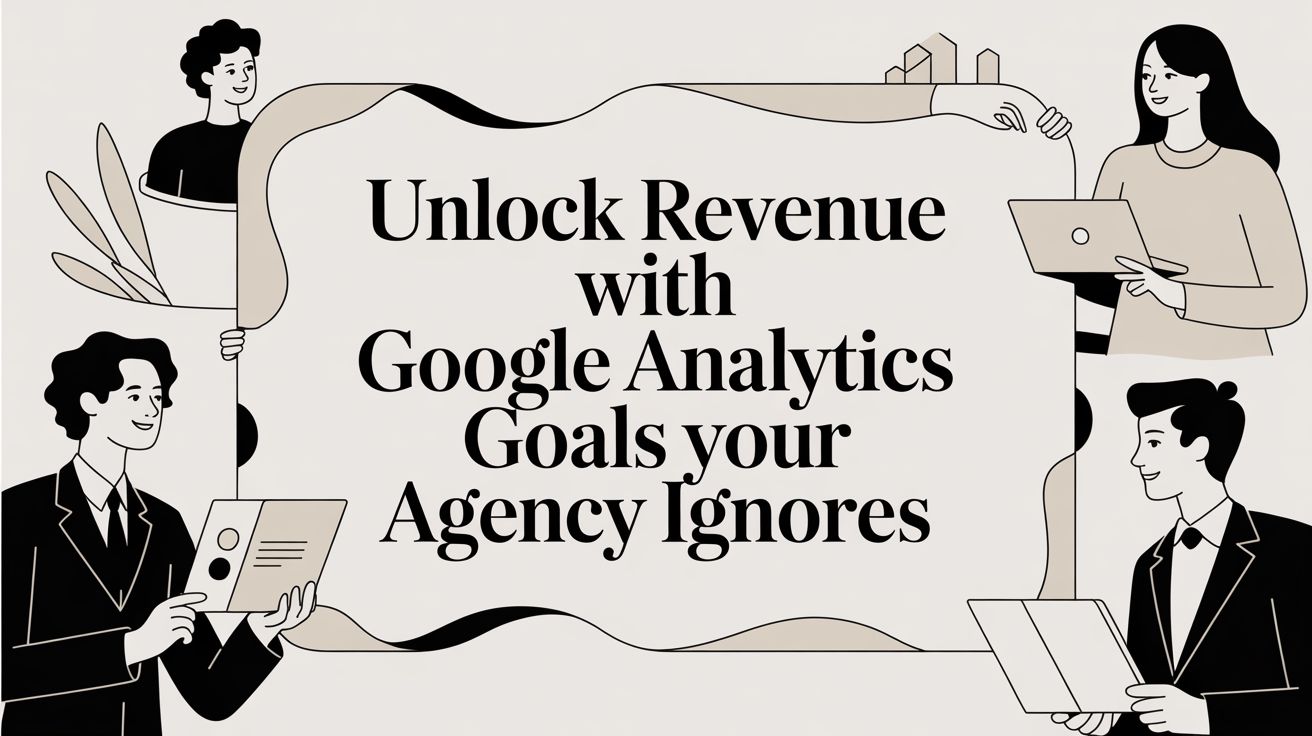
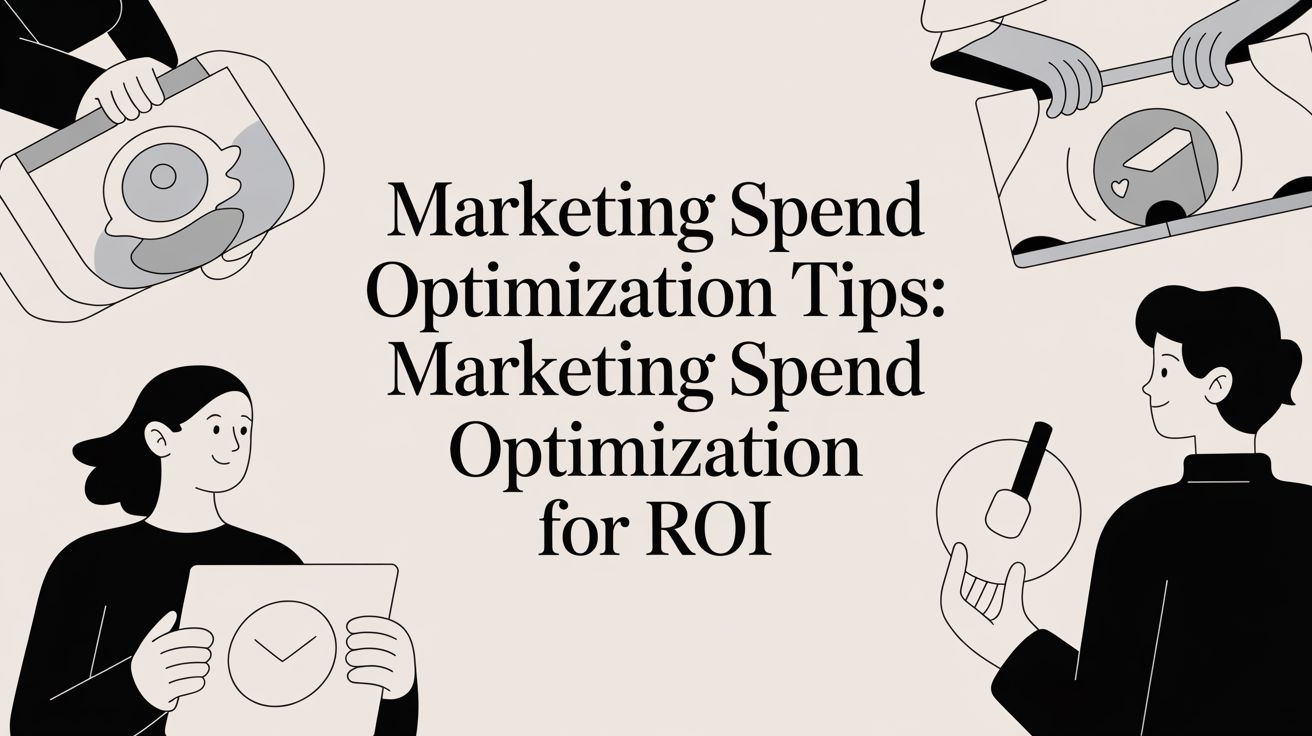
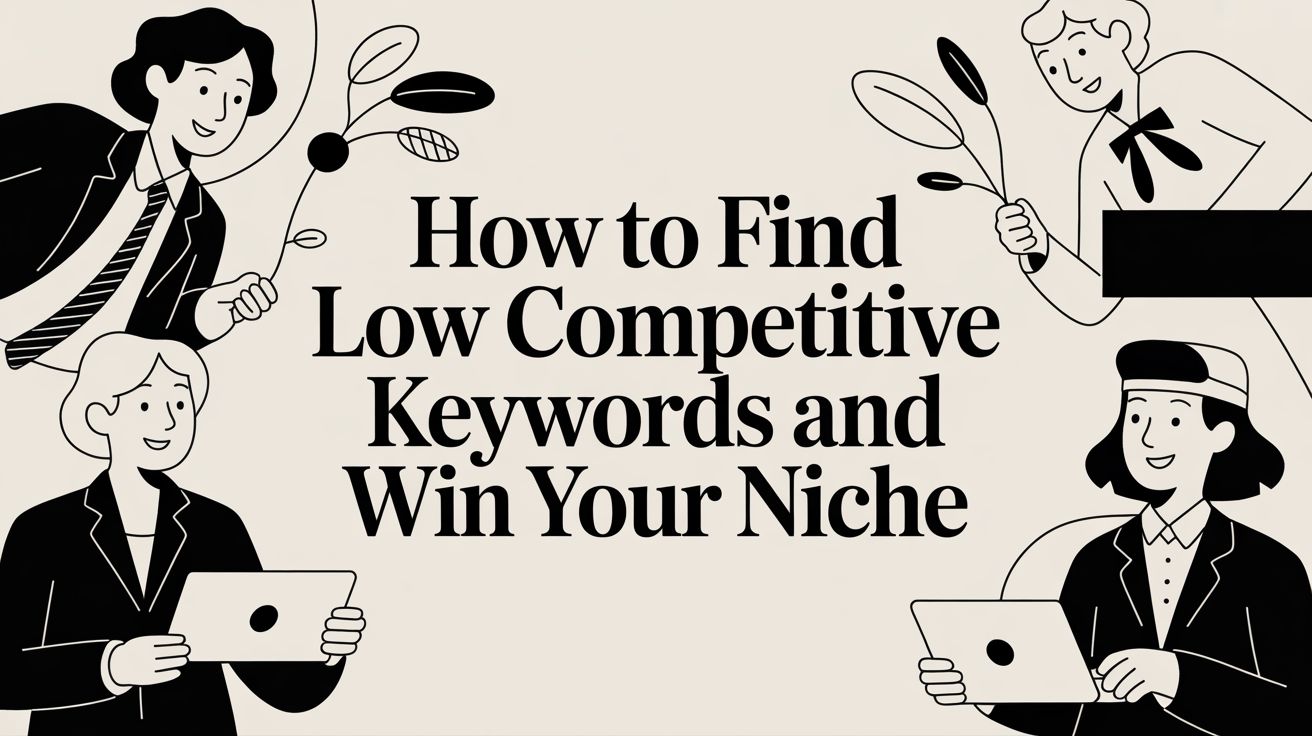
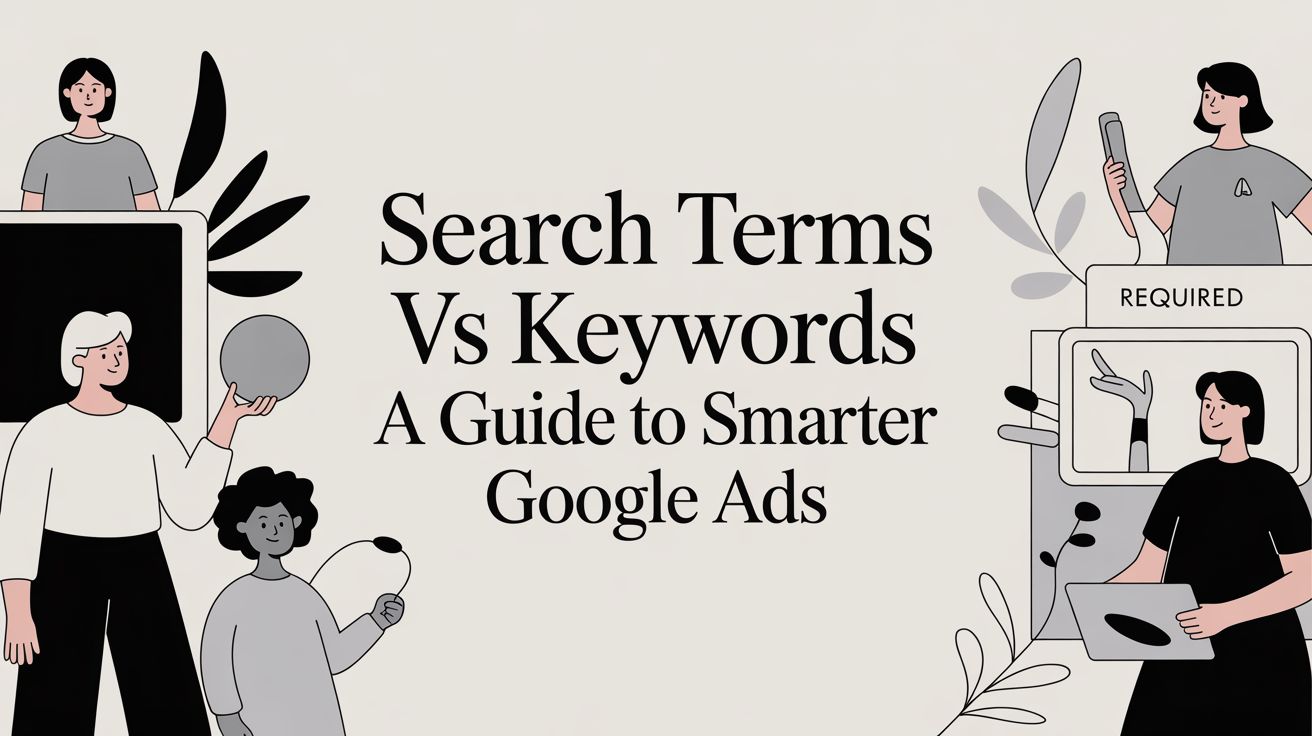


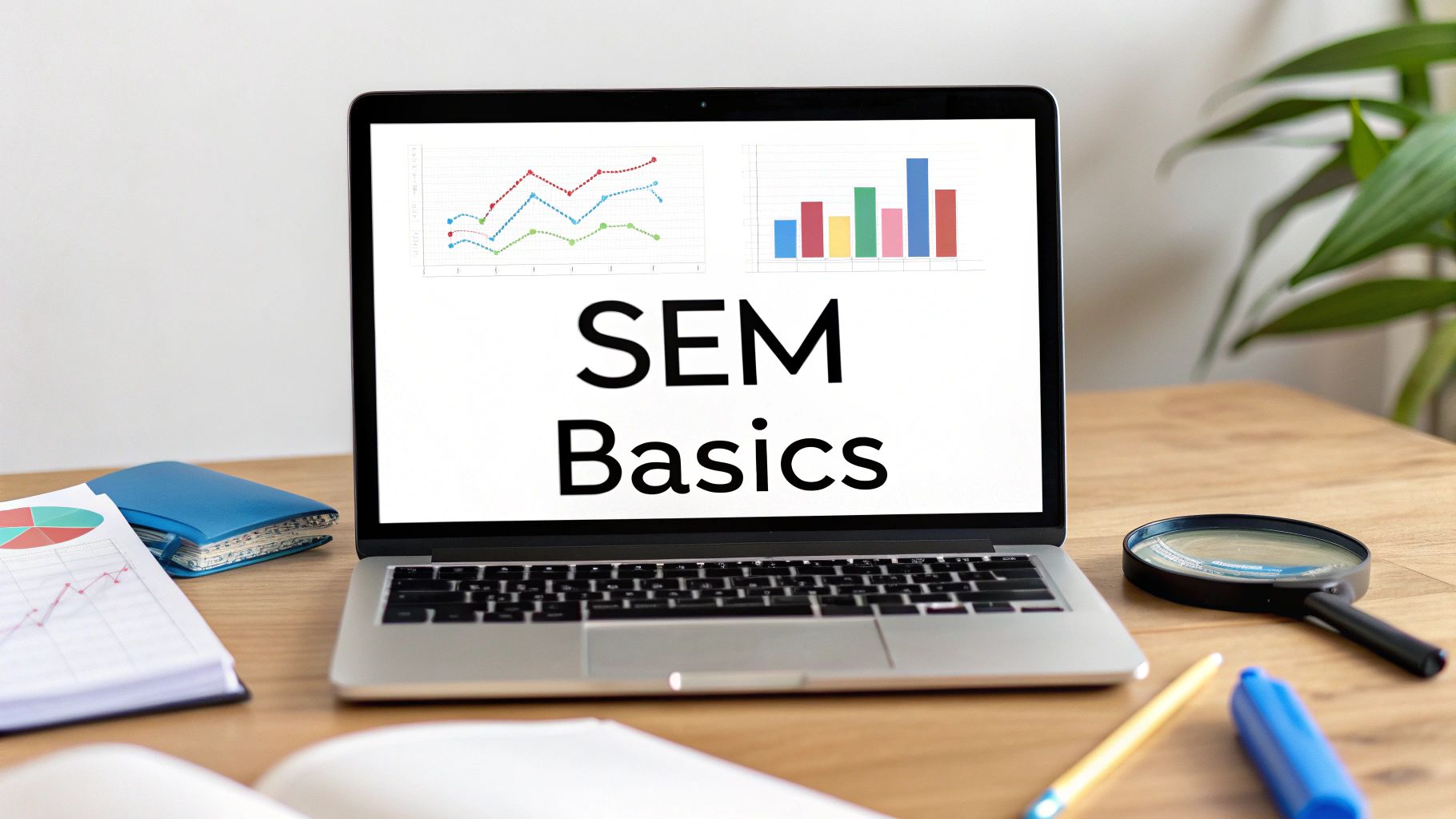

Comments